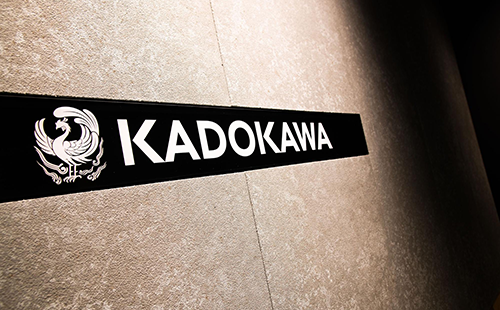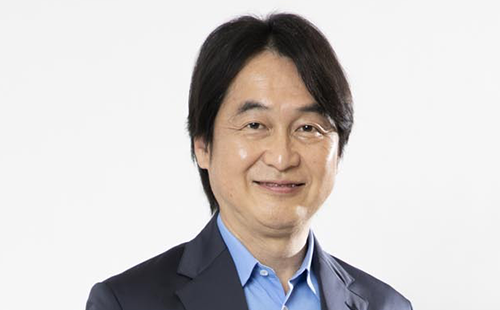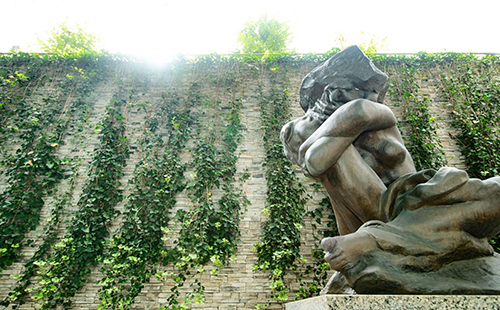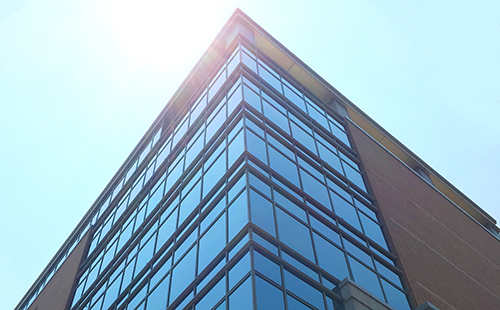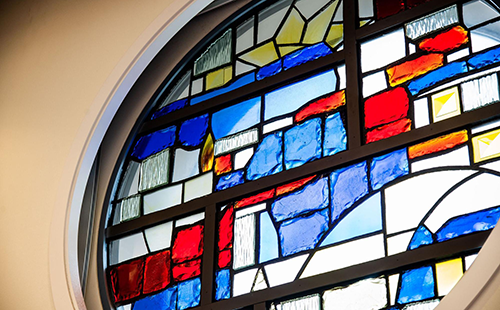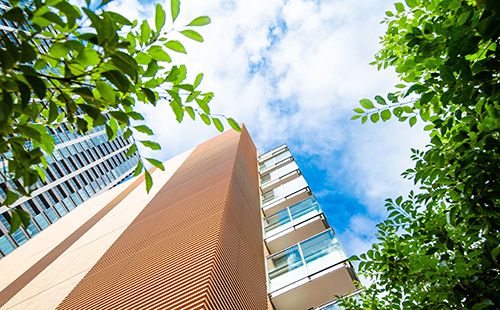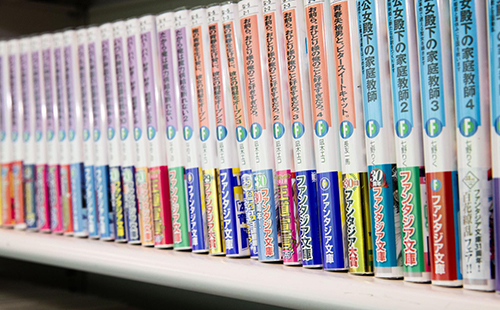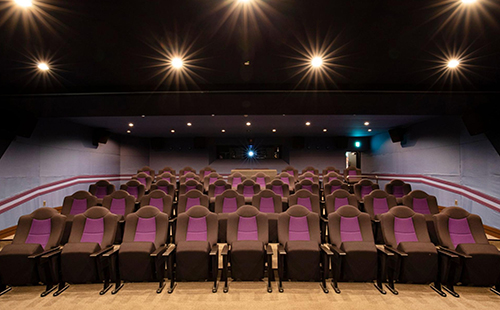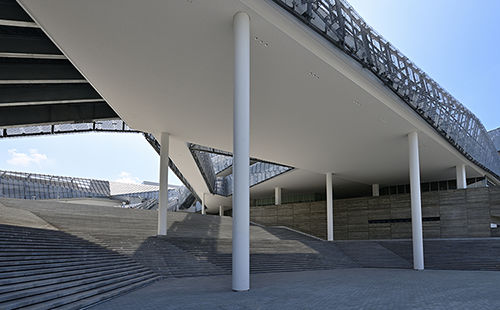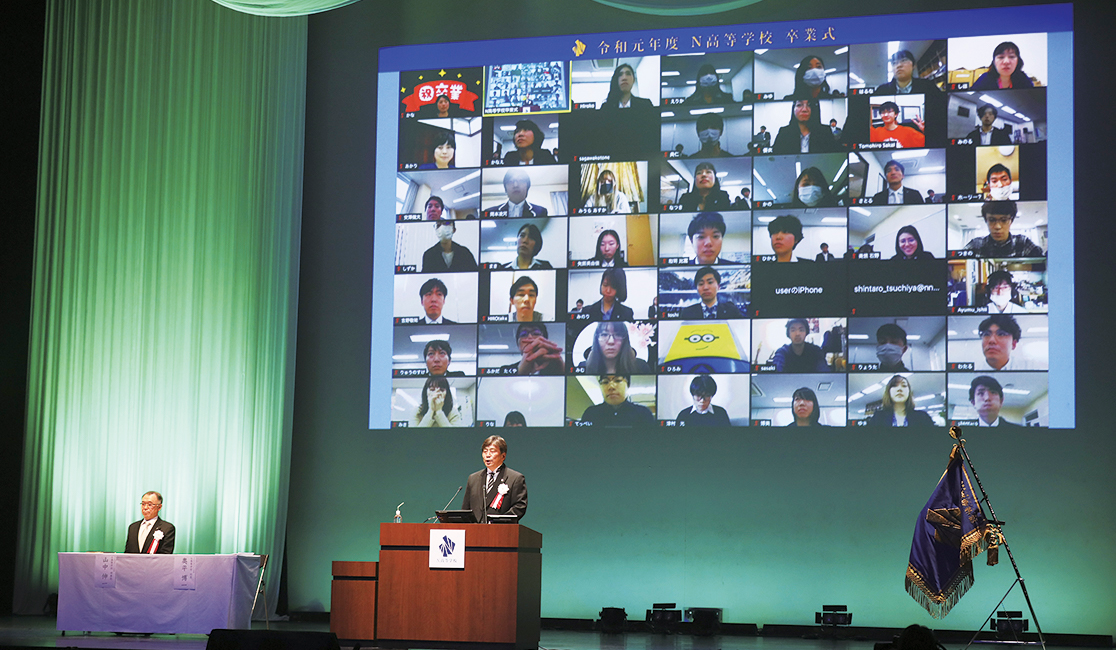- N High School started its operation in 2016 to provide correspondence courses using the Internet and ICT tools. Combined with numbers from S High School (opened 2019) and R High School (opened 2025), enrollment continues to grow, exceeding 30,000 students in total.
- Many students choose these schools as they can find what they want to do from a variety of curricula and allocate more time to what they want to do.
- The schools help students become self-directed through various initiatives, with more students taking on diverse challenges, such as revitalizing local towns and starting an apparel brand.
The N High School Group (N, S, and R High Schools) is a group of online schools run by Kadokawa Dwango Educational Institute. They make use of Dwango’s independently developed interactive education and learning services as well as experiential learning services via virtual reality. How do online schools differ from conventional in-person schools? And what is the N High School Group's vision for the future of learning?
N High School (Kadokawa Dwango Educational Institute), opened in April 2016 in Uruma City, Okinawa, is a credit system, regional correspondence high school. Its students can learn at their own pace using cutting-edge digital tools employed by technology and other businesses, including Slack and Google Workspace, on personal computers, smartphones, and tablets. Defined by Article 1 of the School Education Act of Japan, from which students can earn a high school diploma, students in Japan and abroad can enroll, as daily learning can be done via the Internet.
At N High School Group schools, we are working to create a better environment for delivering equal educational opportunities for everyone while also striving to provide high-quality education that combines online and in-person classrooms. The curriculum extends to education that responds to the needs of an internet-based society beyond compulsory credit courses for earning a high school diploma, including college entrance exam prep, programming, web design, work experience, and study abroad.
More students are actively choosing N High School for a variety of reasons, as they can study only what they like, such as a desire to focus on college entrance exams, study more specialized fields, or start a business while in school. As a result, the number of students, which stood at around 1,500 at the time of opening, has risen to over 30,000 across the N High School Group (as of March 31, 2025).
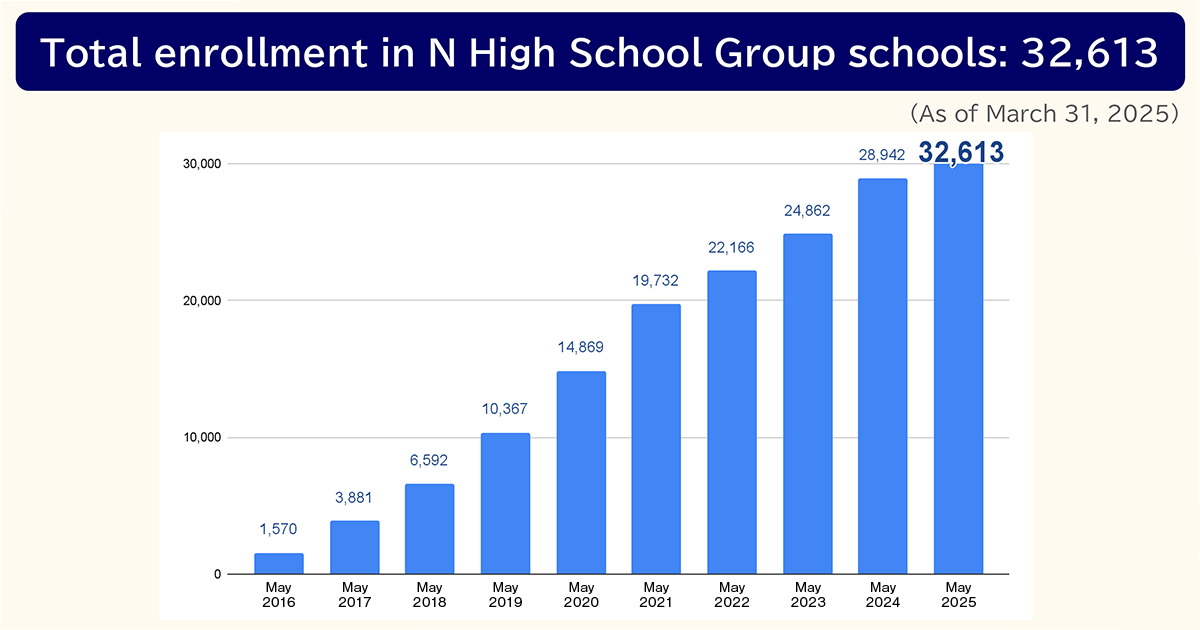
“We provide new and diverse education programs that respond to the needs of the internet-based society in which we now live. This is based on our institutional philosophy of equipping students with a comprehensive ability to survive a globalized, IT-oriented society, to develop globally active talent.” (PR, Kadokawa Dwango Educational Institute)
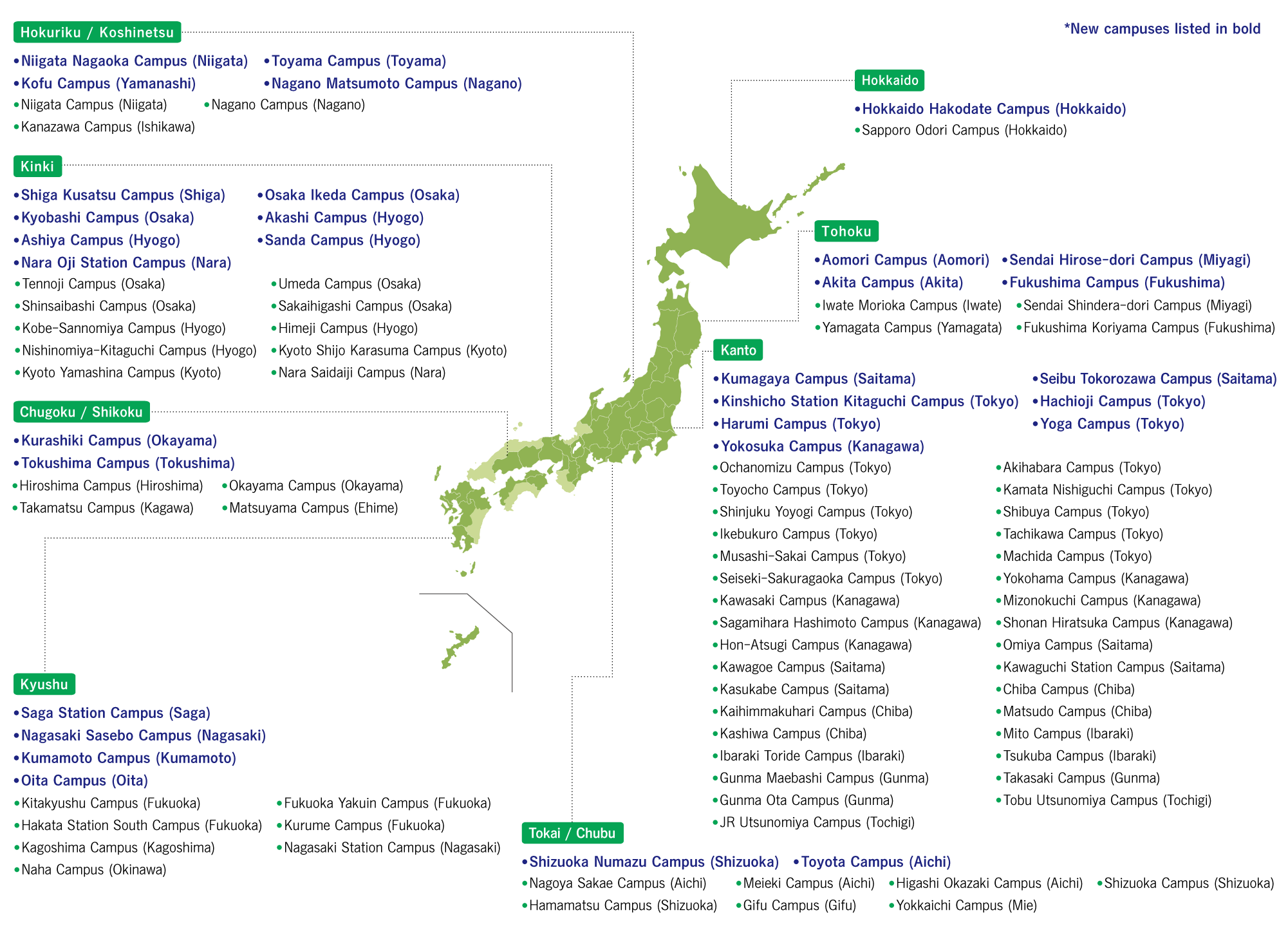
The Commuter Course, offered at 100 locations nationwide, and the Online Commuting Course have launched “Project N” in collaboration with various businesses and government offices. It is a project-based learning program in which students work on solving social issues. So far, more than 200 projects have addressed real-world social issues in collaboration with companies and organizations, including Bandai Namco Entertainment Inc., Asahi Soft Drinks Co., Ltd., and TOMY Company, Ltd.
“Each project is run on a case-by-case basis. Usually, a team of five to six students works on one topic over a period of one to three months for a specific output, and presents the result. Through working on Project N, students develop skills to identify problems and come up with solutions by themselves, and communicate to others.” (PR, Kadokawa Dwango Educational Institute)

At the N High School Group, students can take advantage of the benefits of an online high school and have many different experiences using your extra free time with our extracurricular activities. Using the ZEN Study system, students can learn about a wide range of fields, from lectures on college entrance exams to courses on programming, web design, and novel and video creation. Extracurricular activities with other classmates include online clubs (the Investment Club, Enterprise Startup Club, Politics Club, E-sports Club, Dance Club, Art Club, Research Club, etc.) and hobby groups, work experience programs, workshops, study abroad, and more, offering opportunities to learn through experiences and interactions.
Additionally, N Progressive School, which targets junior high school students, was opened in April 2019. While it is not a junior high school defined by Article 1 of the School Education Act, it is a progressive school based on a new concept leveraging educational content of the N High School Group. N Progressive School will strengthen a framework for helping students design their future path from age 12 to realize their individual dreams by working more closely with the N High School Group.
Another feature of the N High School Group is its high post-graduation placement rate. In academic year 2024, 95.04% of students across the Group successfully decided on a post-graduation career path. We also place a strong emphasis on support for college entrance exams. In 2024, 7 students were accepted to the University of Tokyo, 189 to national and public universities, 23 to former imperial universities (Hokkaido University, Tohoku University, the University of Tokyo, Nagoya University, Kyoto University, the University of Osaka, and Kyushu University), 14 to medical schools, 4 to Tokyo University of the Arts, 82 to Waseda and Keio Universities, 264 to GMARCH schools (Gakushuin University, Meiji University, Aoyama Gakuin University, Rikkyo University, Chuo University, and Hosei University), and 556 to Kansai-area schools (Kansai University, Kwansei Gakuin University, Doshisha University, Ritsumeikan University, and Kindai University). Five of the students who were accepted to the University of Tokyo studied at N High School Group schools for three years, with one of those students having also studied at N Progressive School, as well, for a total of 6 years.
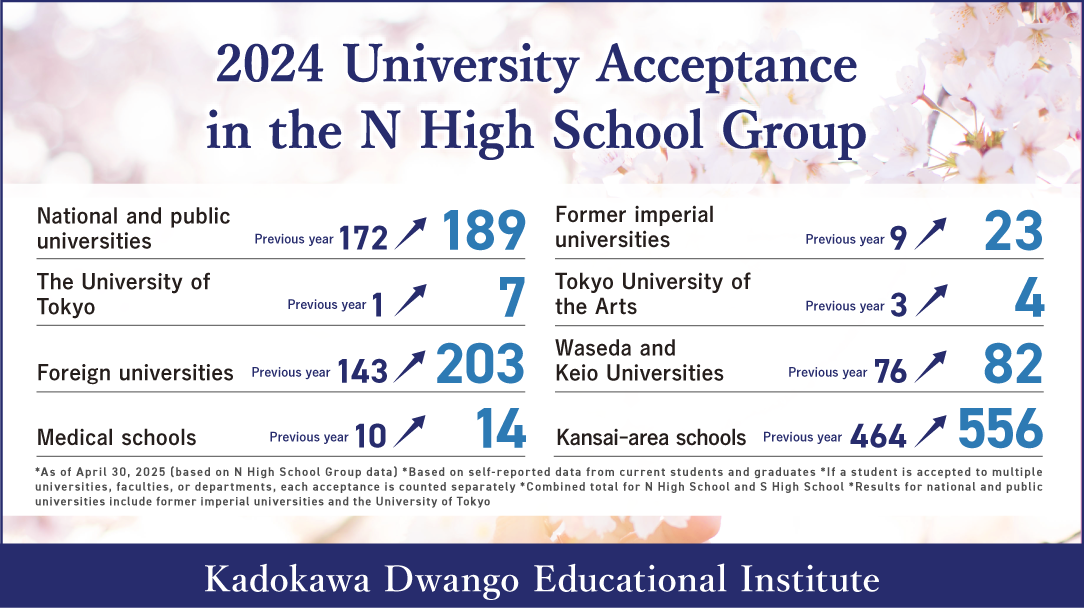
Acceptance rates at foreign universities is also increasing, with 203 graduates accepted in 2024. Of these, 43 graduates were accepted into universities from THE World University Rankings'* top 100 schools, including The University of Chicago, the University of Michigan, The University of Manchester, The University of British Columbia, King’s College London, and The University of Melbourne.
*A ranking published by Times Higher Education (THE), a UK-based journal specializing in higher education
“Many students gradually find what they want to do while working on various studies and activities in the schools. One of the virtues of the N High School Group is that both options are available: trying various things, and focusing on one thing to master it.” (PR, Kadokawa Dwango Educational Institute)

